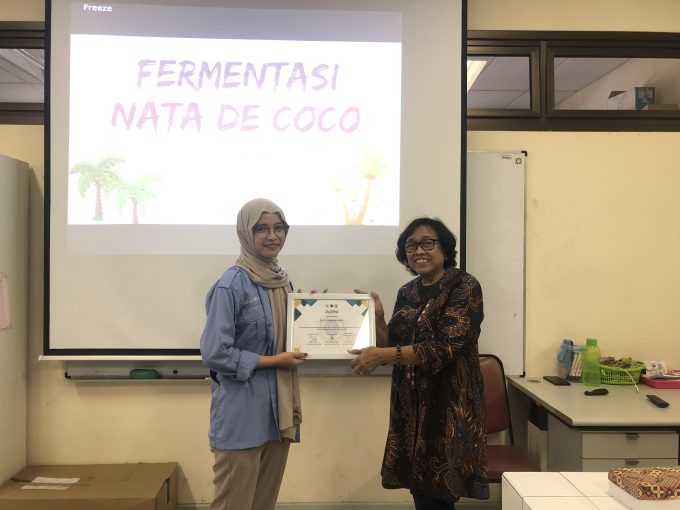
Yogyakarta, October 21, 2023 – In an effort to enhance the understanding of microbiology students and high school students, the Department of Agricultural Microbiology at Gadjah Mada University (UGM) organized the Microbiome Creation Food Product event on Saturday, October 21, 2023. The event took place at the Integrated Agrocomplex Laboratory and featured Sri Wedastri, a lecturer of Post-Harvest Microbiology at the Department of Agricultural Microbiology, UGM, as the speaker.
The main objective of the Microbiome Creation Food Product is to provide in-depth knowledge and understanding to participants about the process of making nata de coco. With a competent speaker, participants are invited to understand the microbiota involved in the formation of nata de coco and its impact on health and microbial diversity. The event focuses on delivering material about the production of nata de coco, a fermented product that is not only delicious but also rich in benefits for health. Participants, consisting of microbiology students and high school students, are not only listening to theory but also actively participating in the practical aspects of nata de coco production. The practical activities are designed to provide a direct and profound experience, allowing participants to feel each stage in the process of making this fermented product. Through a group approach, a natural collaborative atmosphere is created, enriching the learning experience for participants.
Dr. Ir. Sri Wedastri, M.S., as the speaker, provides practical guidance and emphasizes the microbiological aspects related to nata de coco. “This activity is not only about product creation but also provides insight into the importance of understanding microorganisms in the food industry,” she expressed.
After participating in this event, it is hoped that participants will have a comprehensive understanding of the nata de coco formation process and be able to apply the knowledge gained in their daily lives. The Microbiome Creation Food Product activity is expected to have a positive impact, not only for the participants themselves but also for the wider community through the dissemination of knowledge about the diversity of fermented products.
